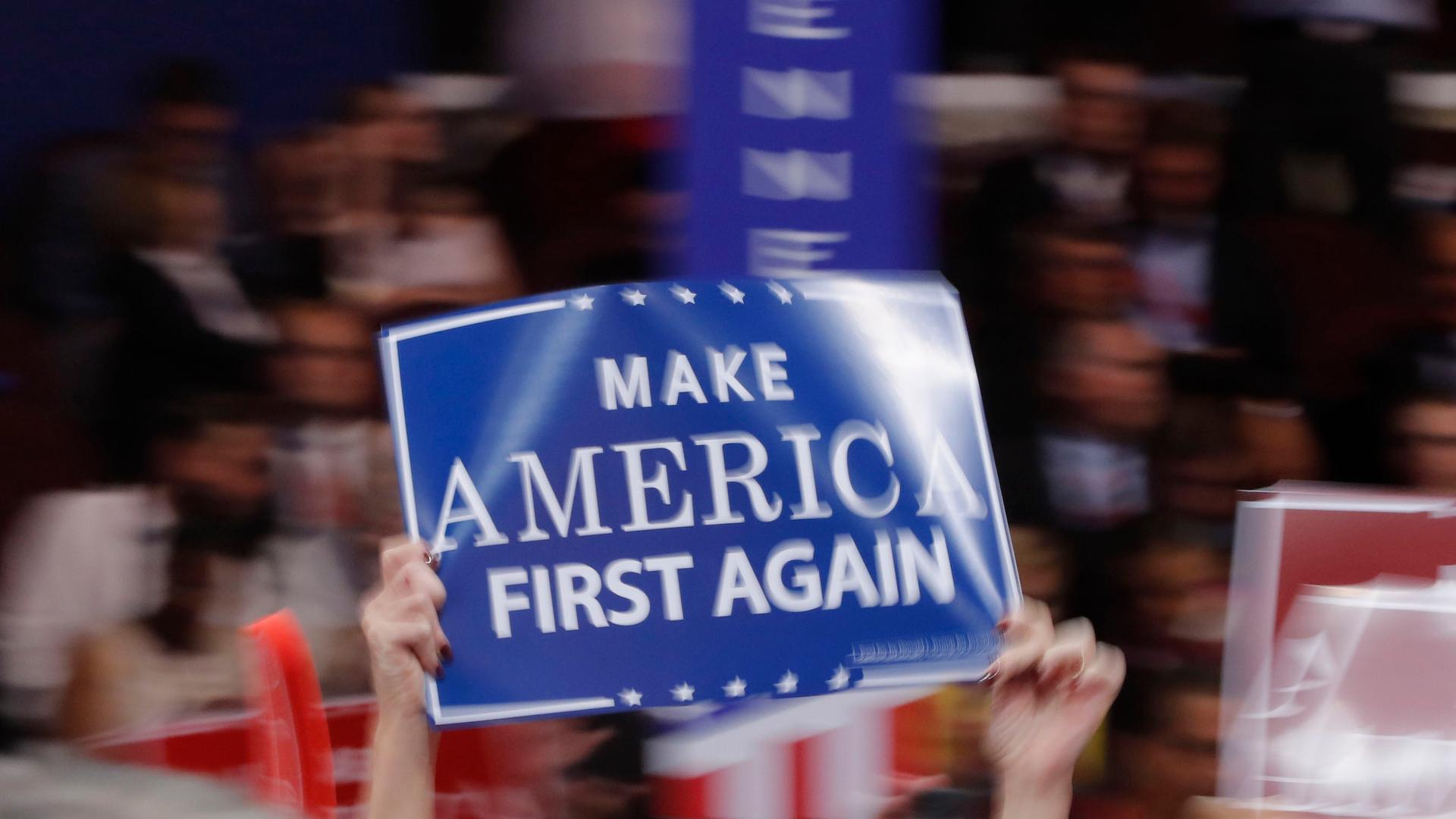America has never been isolated from the world, so has ‘America First’ ever made sense?
Brian Snyder/Reuters
We've heard a lot this election cycle about “American exceptionalism,” and how America should go it alone in the world. "America First."
That's how it was in the good old days, right? Without foreign alliances and commitments.
Actually, no, says historian Larrie Ferreiro.
Ferreiro is author of an upcoming book titled "Brothers at Arms," about the international help that America depended on to achieve its independence from Britain during the Revolutionary War.
“'America First,' 'American greatness,' 'American exceptionalism.' These are all phrases that have been used in this campaign,” says Ferreiro, “and they’ve come to mean the idea of drawing up the bridge, separating America from the world. When in fact the original phrases meant something completely different.”
He says American exceptionalism has its roots in America’s role as a model and example to the world.
The phrase “American greatness” was first used in 1776, not long after the Declaration of Independence. A minister by the name of Timothy Dwight gave a valedictory address at Yale. He spoke about the foundations of American greatness “as Americans acting not as inhabitants of a small village, but rather as citizens of the world.”
“All of these concepts,” adds Ferreiro, “at the time they began, meant an American engagement with the world, not as it is being represented today, an American disengagement, or the pulling up of the drawbridge” to immigrants.
Ferreiro argues that the American colonies could never have become independent from Great Britain without the help of immigrant soldiers, or without foreign volunteers who came to fight, and above all without assistance from Britain’s international rivals, especially France and Spain.
That assistance was indirect and direct. Guns, gunpowder and other supplies helped the colonists survive the early, difficult years of the Revolutionary War. France openly joined the war in 1778 and Spain followed a year later. French and Spanish fleets and armies pinned down Britain’s resources on every continent. French forces were critical in the decisive victory at Yorktown, which was in turn financed by Spanish silver.
The contributions of France and Spain and other nations were deliberately airbrushed out of mainstream US history in the mid-19th century, “when we had a Manifest Destiny mindset,” says Ferreiro.
“We’ve been an exceptional nation for a very long time,” concludes Ferreiro, “not because we stand head and shoulders above every other nation in our character or in our temperament. But rather because, from the beginning, we’ve been a nation that has both looked to its alliances, and looked to the people who come from those nations that we engage with, to help build and strengthen us.”
Every day, reporters and producers at The World are hard at work bringing you human-centered news from across the globe. But we can’t do it without you. We need your support to ensure we can continue this work for another year.
Make a gift today, and you’ll help us unlock a matching gift of $67,000!
